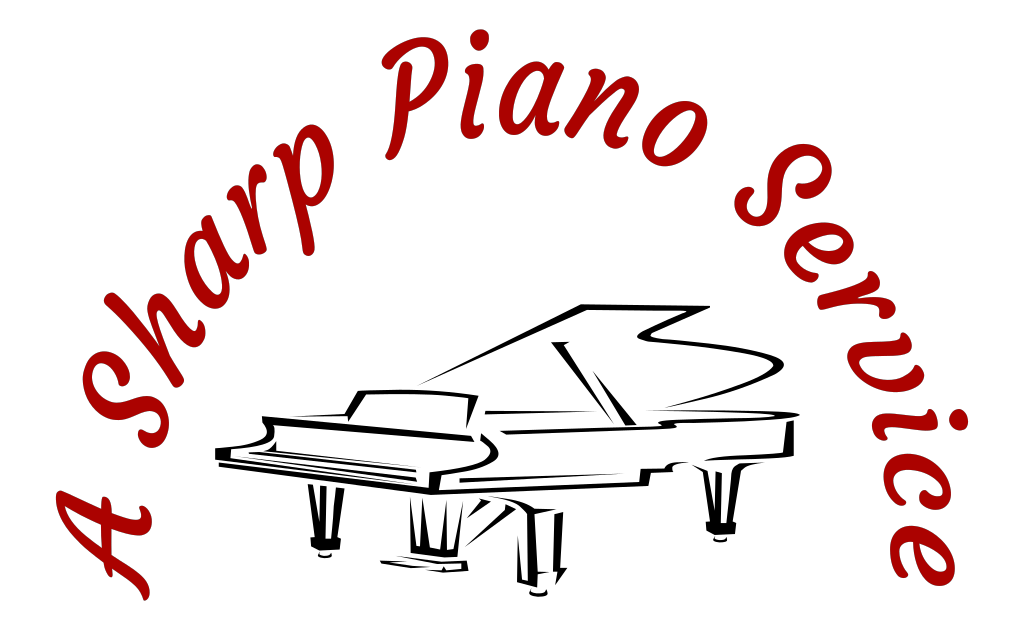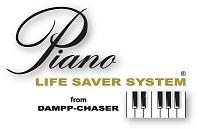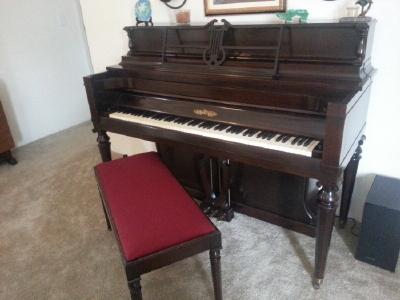Cont....Think about how that high humidity will affect a piano and
all of its wooden parts like action parts, sound board, and keys.
Pianos are built under controlled relative humidity (RH) levels. In fact
your piano will operate best when the RH is about 42%. That is very
dry. As RH goes up, the wood in your piano swells. This causes the
sound board to push up on the strings and, in turn, the pitch goes sharp.
Then when the RH drops, the pitch will go flat. As this happens, the
piano gets more and more out of tune. But more important is what
happens to the wood as it expands and contracts. This is why wood
cracks and falls apart over time. In a piano, it would result in cracked
sound boards, loose tuning pins, split bridges, as well as broken keys.
A humidity control system stops that process, leading to
a piano that stays in tune longer and requires less costly repairs.
Because a piano is often a major investment, and will very likely be passed
down from generation to generation, taking the steps to maintain and
protect it now will give you and your family unlimited hours of musical
enjoyment for many years to come, and will make your piano a cherished
heirloom that you can be proud to pass along. How sad it is when someone
purchases or inherits a beautiful old piano, but cannot enjoy playing it
because it was never properly taken care of.
Dampp Chaser humidity control systems, and the other accessory items
mentioned here, can help you to have an instrument that will be a treasure
for many generations.
< See additional links on the left


